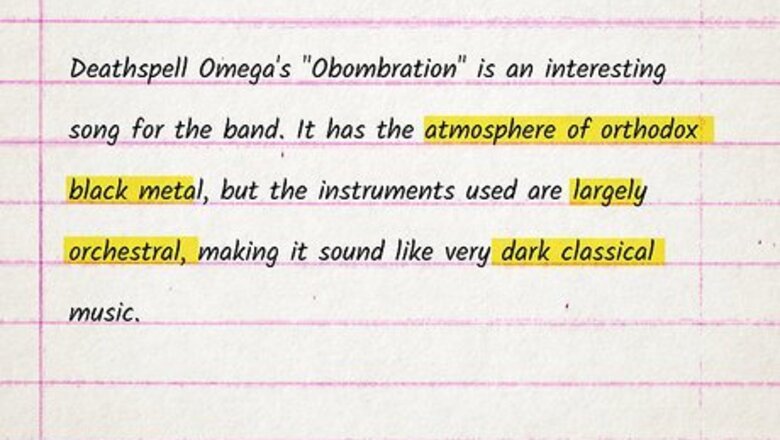
views
Describing Music Objectively
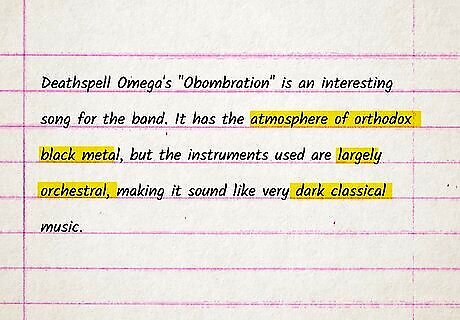
Pinpoint the genre. Genres categorize music within overarching umbrellas; large amounts of music tied together via a common tone or structural approach, but usually both. Referring to genre is the easiest way you can describe music to someone. Genres may refer primarily to the sound, but they come with a lot of preconceptions, including lyrical content and artistic intention. If the song you're trying to describe fits what you know of the genre, the genre-tag will become that much more useful to you. In modern music, it is common for musical groups to draw from two or more genres to develop a unique character of their own. Calling a band 'eclectic' is a decent start if they're playing in many different genres. Try to keep your genre tags limited to one or two however; anything more and you'll just end up confusing whomever you're talking to. The Beatles, for instance, incorporate many styles, but they're best seen as pop. Led Zeppelin could be considered anything from progressive to blues or metal, but they're arguably best pegged as bluesy hard rock. For example, you might say: "Deathspell Omega's "Obombration" is an interesting song for the band. It has the atmosphere of orthodox black metal, but the instruments used are largely orchestral, making it sound like very dark classical music."
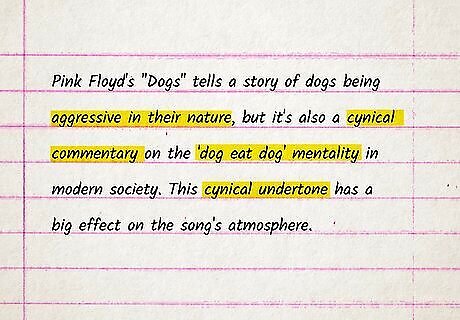
Look into the lyrics. The majority of songs you'll hear are quite clear in their topics. Many pop songs, for example, concern romantic encounters the singer has had. If the song's meaning isn't already apparent to you, do some research online to learn what the song is about. Many songs-- especially classics-- will have some info as to the story behind them. Using this story alongside your description will help to specify the character of the song. For example, you might say: "Pink Floyd's "Dogs" tells a story of dogs being aggressive in their nature, but it's also a cynical commentary on the 'dog eat dog' mentality in modern society. This cynical undertone has a big effect on the song's atmosphere."

Educate yourself in formal notation. Formal notation is the way musicians describe the objective details of music accurately to their fellow players. It takes years to develop a masterful understanding of notation, but having a general idea as to the tools musicians use to communicate with one another will help out a lot. The 'key' of a song refers to the chords and set of notes it predominantly uses. A 'minor key', for instance, tends to sound inherently sad, while a 'major key' is often uplifting. Tempo refers to the speed of the music or the pace of the beat.
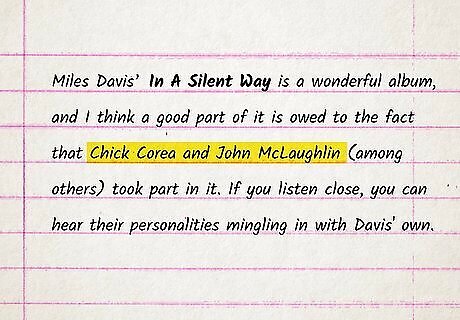
List the musicians involved. Giving an outline of the particular people involved in the making of the music is most important in performance-based styles of music, like jazz. For popular forms of music, telling someone which singer(s) are involved will give them the best idea as to the sound of the song. Many of the best-known singers have very distinctive vocal qualities, and merely giving a name may give the person you're talking to a clearer idea what to expect in a song. For example: "Miles Davis' In A Silent Way is a wonderful album, and I think a good part of it is owed to the fact that Chick Corea and John McLaughlin (among others) took part in it. If you listen close, you can hear their personalities mingling in with Davis' own."
Describing Music Subjectively
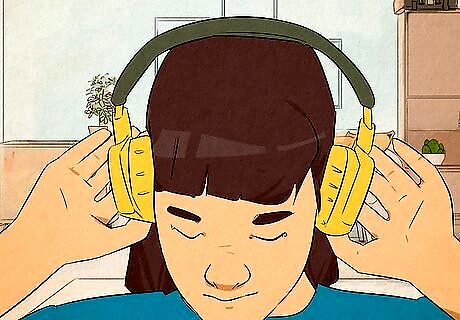
Listen to the music intently. Even moreso than a formal analysis of music getting a full emotional reaction requires you really invest yourself in listening. Find a time and place you won't likely be distracted, and put on the song. Let yourself focus in on the mood of the song. Listen carefully to the lyrics if there are any. While you're listening to the music, try to figure out how the artist was feeling when he wrote the song. Giving your heart and mind over to the music will make it a lot easier to communicate your own personal response to the material. Listening with headphones is usually the preferable mode of listening intently; it helps to block out all external sound, and you'll be able to pick details out of the mix more clearly.

Read music reviews. Music journalists and reviewers make it their business to describe music in ways that sound fiercely descriptive and appealing-- or unappealing. Music reviews have become a very helpful outlet in the internet age, and you can usually read many reviews about the most obscure albums. Reading some of them may give you a better understanding of how to describe music yourself. The webzine Pitchfork is often recommended in this respect, but the pompous style of writing is not for everyone. More specialized and underground outlets like Heathen Harvest Periodical or Prog Sphere Magazine may offer better examples of descriptive writing. Music reviews are also found in print form. Newspapers will often include them alongside film reviews. You can also buy music books that will focus specifically on a band, scene or genre.

Try to visualize the music. Actively visualizing the music you are listening to ties in with intent focus. If you're looking for interesting ways of describing the music, it's a good idea to meditate and imagine the music scoring a scene to an imagined film inside your head. The process of actively visualizing music may seem obtuse at first if you're not used to it, but it can otherwise be a great way of appreciating music without distractions. For example: If the music is sad, you might visualize rain or images of death and loss. If the music is upbeat, you might think of a car racing down a highway. If the music is gentle, it may bring to mind the image of kittens nestling in a handknit blanket. No interpretation is wrong; if you are sincerely getting an image in your head because of the music, it must be for a good reason.
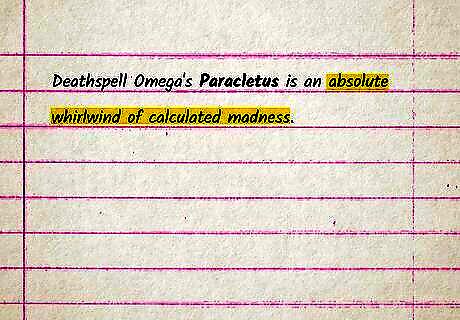
Employ metaphors and poetic language. Music itself is an intensely personal, creative venture with poetry inherent to its very nature. It makes sense that descriptions of music can and should be poetic as well. If someone is emotionally rapt by a piece of music, they will often explain their feelings in terms of a metaphor. Metaphors and other descriptive poetic devices (like similes) will enable you to describe the emotional experience of the music. For a metaphor, you might say: Deathspell Omega's Paracletus is an absolute whirlwind of calculated madness. For a simile, you might say: Anton Bruckner's first symphony sounds like going to an evening gala at the height of 19th-century Prussia.

Compare the song to other songs you've heard. If you are hearing a song that's left a particular impression on you, it's likely you can compare experiencing the music to something else you've heard in the past. Comparing music with other music is a solid way to develop strong associations and expectations in the other person's mind. Comparing music can be done in objective (genre, tempo, musicians, etc.) or subjective (mood, tone, etc.) terms. For example: "Dream Theater's "A Change of Seasons" reminds me quite a bit of Yes' "Close to the Edge" in terms of its sprawling design, but it's obviously quite a bit darker and heavier in comparison."



















Comments
0 comment